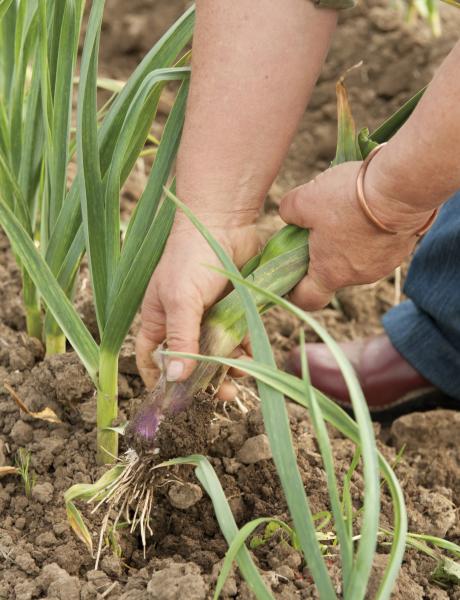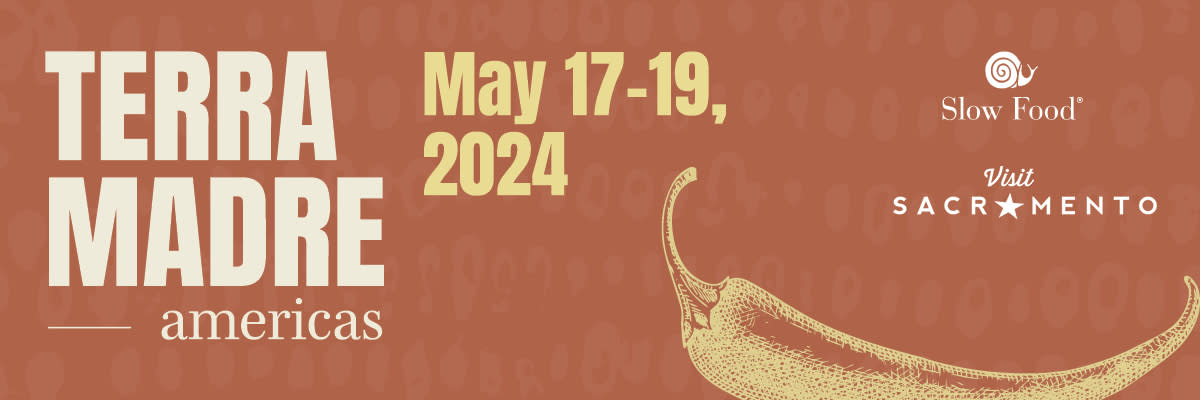Biocultural Territories of Latin America and the Caribbean
Delegates from across America, spanning all parts of the food system, will explore biocultural territories through different crops – corn, sugar cane, açaí, cocoa, quinoa and – that are controversial in terms of good, clean and fair principles and will show good practices to safeguard and promote them.
This space will focus on the following territories:
• The Mesoamerica, with corn and milpa crop-growing system
• The Pacific and Caribbean, with ancestral viche production
• The Amazon Rainforest, with açaí agroforestry cultivation
• The Atlantic Rainforest, with agroecology and cocoa production system
• The Andes, with traditional grains terrace systems

Ticketed
Events
Take your slow food education to the next level with tastings and masterclasses available across the 3-day conference.
Learn MoreTicketed
Events
Take your slow food education to the next level with tastings and masterclasses available across the 3-day conference.
Learn MoreBiocultural Territories Programming Calendar
Terra Madre Americas is a free 3-day conference open to the public. Find details below about additional free and paid ticketed experiences to expand your experience.
Friday, May 17th
Biocultural Territories Workshops with Tastings
10:30 am - 12:00 pm - Talk and Tasting Experience on Açaí
With Cook Maria do Socorro
This event will feature a Brazilian cook, from Amazônia, who will share with us her knowledge about açai, from its origins to the challenges communities are dealing with to continue preserving this product, including best practices.
The açaí berry originates from the Amazon region, primarily found near rivers and streams in the estuary of the Amazon River. By the 1980s, it was recognized as a superfood, and urbanization in the 1990s expanded its consumption to cities. Açaí is crucial for the health and sustenance of both rural and urban populations in the Amazon, serving as a staple food. However, its transformation into a commodity has led to issues such as poor working conditions and exploitation of labor, particularly in the harvesting process.
In addition, there will be a tasting of Essencia do Ver-o-Peso, an açaí-based dish, cooked on the spot by a Brazilian cook, so you can learn about this berry with your palate as well.
1:00 pm - 2:30 pm - Talk and Tasting Experience on Corn
Presented by Jesus Roberto Poot Yah with Cook Monica Sosa
In this event, a Mexican farmer will explore corn in all its intricacies, delving into its origins and examining the hurdles that farmers encounter in cultivating this crop, but also best practices related to Milpa cultivating system.
The omnipresence of corn profoundly impacts our lives. Originating in Mexico 7,000-10,000 years ago, it forms the core of the Mesoamerican diet, intertwining with beans and squash in the traditional milpa system. Yet, as corn transitions to a commodity, issues arise. Liberalizing seed imports and deregulating the corn-tortilla chain pre-NAFTA has marginalized local farming. Corporate control erodes biodiversity, ancestral knowledge, and economic autonomy, heightening inequality. In response, the Slow Food Milpa System Presidium in Chiapas preserves corn diversity, supports traditional farming, and markets milpa-based tostadas, fostering cultural and economic resilience.
During this event a Mexican cook will prepare a taste called Toasted Corn Freshness.
3:30 pm - 5:00 pm - Talk and Tasting Experience on Sugar Cane
Presented by Leidy Casimiro Rodríguez with Cook Eduardo Martinez
In this event we will address the topic of sugarcane with a Cuban agroecological farmer, who will explain the origins of the product, its properties, but also the challenges that farmers face every day, ending with some best practices that can be adopted.
Sugar, emblematic of indulgence and festivity, carries weighty social implications, yet its production poses significant health, environmental, and social concerns. Reevaluating its societal role is imperative, with its historical and production contexts serving as crucial points of reflection. From its ancient Asian origins to its colonial-era exploitation in the Caribbean, sugar's trajectory prompts profound considerations of its multifaceted impact. Embracing agroecological approaches offers a pathway towards cultural preservation and sustainable alternatives.
During this time of introduction to the world of sugarcane, a Colombian cook will prepare on the spot a dish with panela, an unrefined whole cane sugar, a fish with steam from sugarcane distillate, to complete the journey on this product not only from a theoretical point of view, but also from a tasting one.
Saturday, May 18th
Biocultural Territories Workshops with Tastings
10:30 am - 1:00 pm - Talk and Tasting Experience on Corn
Presented by Jesus Roberto Poot Yah with Cook Monica Sosa
In this event, a Mexican farmer will explore corn in all its intricacies, delving into its origins and examining the hurdles that farmers encounter in cultivating this crop, but also best practices related to Milpa cultivating system.
The omnipresence of corn profoundly impacts our lives. Originating in Mexico 7,000-10,000 years ago, it forms the core of the Mesoamerican diet, intertwining with beans and squash in the traditional milpa system. Yet, as corn transitions to a commodity, issues arise. Liberalizing seed imports and deregulating the corn-tortilla chain pre-NAFTA has marginalized local farming. Corporate control erodes biodiversity, ancestral knowledge, and economic autonomy, heightening inequality. In response, the Slow Food Milpa System Presidium in Chiapas preserves corn diversity, supports traditional farming, and markets milpa-based tostadas, fostering cultural and economic resilience.
During this event a Mexican cook will prepare a taste called Toasted Corn Freshness.
1:00 pm - 2:30 pm - Talk and Tasting Experience on Quinoa
Presented by Andrea Oyarzo with Cook Maria Ruth Gutiérrez Vargas
In this event a Chilean quinoa farmer will discuss quinoa in all its nuances, from its origins to the challenges farmers face in growing this product. Additionally, we will also address the topic of good practices that can be implemented.
High in protein, fiber, and minerals, quinoa is hailed as a superfood. However, of over 6,000 varieties, only three dominate the international market. Global demand has led to significant impacts on traditional production regions. Despite its cultural significance, quinoa faced a decline in popularity during colonization, though it remained cherished by indigenous communities. By the late 20th century, scientific validation of its nutritional properties sparked global interest, transforming it from a local delicacy to a globally sought-after food. In this context, the Slow Food network promotes traditional quinoa recipes, preserving cultural heritage and encouraging sustainable cultivation practices.
In addition to this discussion, there will be a tasting of K’ispiñas de quinua (ancestral Andean cookie), an andean salted cracker steamed on a bed of straw, accompanied with red bell pepper, mature cheese, sprouts, charque and honey, which will be cooked on the spot.
3:30 pm - 5:00 pm - Talk and Tasting Experience on Cocoa
Presented by Luciano Ferreira da Silva with Cook Patricia Nicolau
In this space a Brazilian cocoa producer will talk about Cacao, from its origins to the challenges that this product representing an aspect of Latin America brings, and we will tackle the topic of adopting good practices.
The roots of chocolate trace back to the Amazon, where indigenous farmers toil to cultivate cocoa. From Mesoamerican temples to European delicacies, cocoa's journey reshaped culinary landscapes. However, behind its allure lies a troubling truth: cocoa's farmers are often underpaid and endure harsh conditions. Ethical cocoa production, such as the Cabruca Cocoa Slow Food Presidium in South of Bahia, Brazil, aims to empower farmers, preserve biodiversity, and create sustainable, fair-trade chocolate.
Furthermore, attendees can enjoy a sampling session featuring “Delight of Cupuaçu”, prepared with cocoa on-site during the product unveiling.
During this event there will be a tasting of Delight of Cupuaçu, a dish with typical Brazilian ingredients, including cocoa.
Sunday, May 19th
Biocultural Territories Workshops with Tastings
10:30 am - 12:00 pm - Talk and Tasting Experience on Açaí
With Cook Maria do Socorro
This event will feature a Brazilian cook, from Amazônia, who will share with us her knowledge about açai, from its origins to the challenges communities are dealing with to continue preserving this product, including best practices.
The açaí berry originates from the Amazon region, primarily found near rivers and streams in the estuary of the Amazon River. By the 1980s, it was recognized as a superfood, and urbanization in the 1990s expanded its consumption to cities. Açaí is crucial for the health and sustenance of both rural and urban populations in the Amazon, serving as a staple food. However, its transformation into a commodity has led to issues such as poor working conditions and exploitation of labor, particularly in the harvesting process.
In addition, there will be a tasting of Entre as Matas e os Rios, an açaí-based dish, cooked on the spot by a Brazilian cook, so you can learn about this berry with your palate as well.
1:00 pm - 2:30 pm - Talk and Tasting Experience on Quinoa
Presented by Andrea Carolina Oyarzo Mansilla with Cook Maria Ruth Gutiérrez Vargas
In this event a Chilean quinoa farmer will discuss quinoa in all its nuances, from its origins to the challenges farmers face in growing this product. Additionally, we will also address the topic of good practices that can be implemented.
High in protein, fiber, and minerals, quinoa is hailed as a superfood. However, of over 6,000 varieties, only three dominate the international market. Global demand has led to significant impacts on traditional production regions. Despite its cultural significance, quinoa faced a decline in popularity during colonization, though it remained cherished by indigenous communities. By the late 20th century, scientific validation of its nutritional properties sparked global interest, transforming it from a local delicacy to a globally sought-after food. In this context, the Slow Food network promotes traditional quinoa recipes, preserving cultural heritage and encouraging sustainable cultivation practices.
In addition to this discussion, there will be a tasting of Cookie dough with Real quinoa mousse, sweet red quinoa cookies, with real quinoa mousse and black quinoa pop, which will be cooked on the spot.
3:30 pm - 5:00 pm - Talk and Tasting Experience on Sugarcane and Cocoa
Presented by Luciano Ferreira da Silva and Leidy Casimiro Rodríguez with Cooks Patricia Ellen Rodrigues Nicolau and Eduardo Martinez Cañas
During this event two farmers, from Cuba and Brazil, will talk about sugarcane and cocoa, their history, how these products represent Latin America, the challenges that the producers of these products face every day to bring these products to everyone's table and the topic of adopting good practices.
In addition, there will be a tasting of two products, cooked on the spot by two cooks: chicken with corn and panela sauce who will represent sugarcane, and a Chocolate soufflé, representing cocoa.



